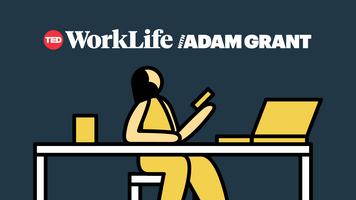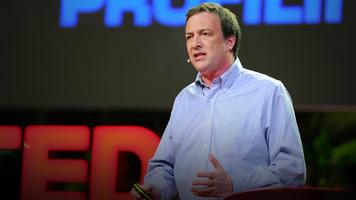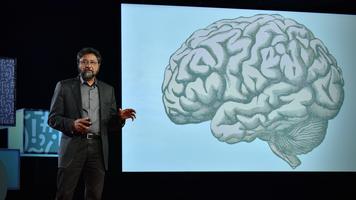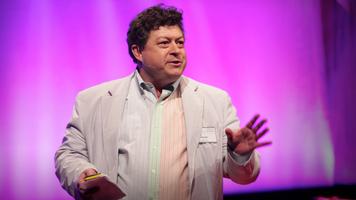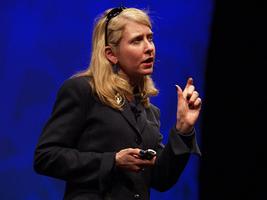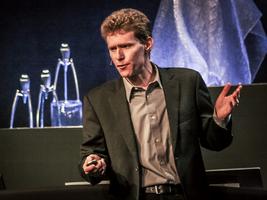Max Little: A test for Parkinson's with a phone call
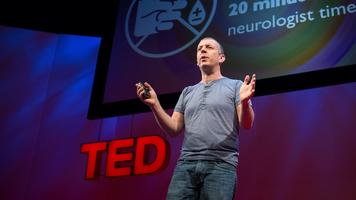
Parkinson's disease affects 6.3 million people worldwide, causing weakness and tremors, but there's no objective way to detect it early on. Yet. Applied mathematician and TED Fellow Max Little is testing a simple, cheap tool that in trials is able to detect Parkinson's with 99 percent accuracy -- in a 30-second phone call.
Max Tegmark: How to keep AI under control
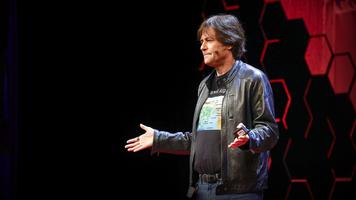
The current explosion of exciting commercial and open-source AI is likely to be followed, within a few years, by creepily superintelligent AI – which top researchers and experts fear could disempower or wipe out humanity. Scientist Max Tegmark describes an optimistic vision for how we can keep AI under control and ensure it's working for us, not...
Max Rashbrooke: 3 ways to upgrade democracy for the 21st century
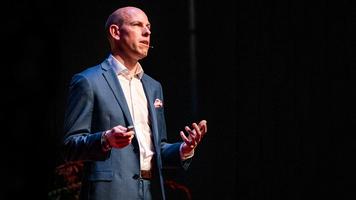
Democracy needs an update -- one that respects and engages citizens by involving them in everyday political decisions, says writer and researcher Max Rashbrooke. He outlines three global success stories that could help move democratic systems forward and protect society against the new challenges this century is already bringing.
Max Hawkins: I let algorithms randomize my life for two years

What if everything in your life was randomized: from the food you ate to the things you did and the places you traveled? Computer scientist Max Hawkins created algorithms to make decisions like these for him -- and got hooked on the experience for two years. He shares how relinquishing choice sent him across the world and opened him up to the be...
Max Jaderberg: How AI is saving billions of years of human research time
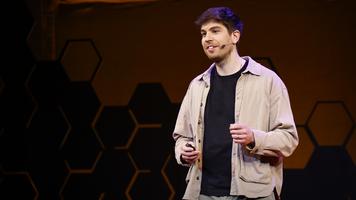
Can AI compress the yearslong research time of a PhD into seconds? Research scientist Max Jaderberg explores how “AI analogs” simulate real-world lab work with staggering speed and scale, unlocking new insights on protein folding and drug discovery. Drawing on his experience working on Isomorphic Labs' and Google DeepMind's AlphaFold 3 — an AI m...
Henry Ou: What is earwax — and should you get rid of it?
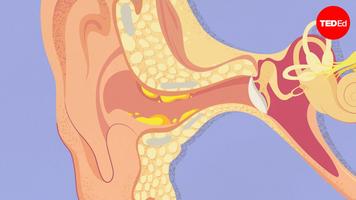
Grooming paraphernalia has been found in numerous archeological sites, many of which have included earwax removal tools. And earwax evacuation remains a popular hygienic habit today. But what is earwax? And are the efforts to eliminate it actually good for us? Henry C. Ou explores the important role earwax plays in our health. [Directed by Yuriy...
Anna Rothschild: How exactly do inhalers work?
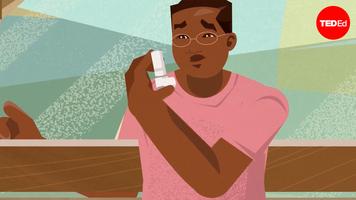
Inhalers are mainly used to treat two conditions: asthma and chronic obstructive pulmonary disease, or COPD. And there are two main types: preventative inhalers and rescue inhalers. Preventative inhalers can be used every day to control symptoms, while rescue inhalers are great in an emergency. So, how do they work? Anna Rothschild explains the ...
WorkLife with Adam Grant: The real reason you procrastinate
Regina Mossotti: The company of wolves
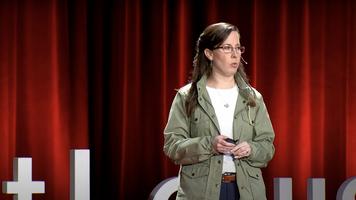
What do you picture when you think about a wolf? A bloodthirsty alpha predator or a pack-oriented living being with a complex emotional life? Recalling experiences rescuing wolf pups, biologist Regina Mossotti explains why debunking negative stereotypes about these proud animals is key to saving endangered species and reshaping conservation effo...
Shahram Izadi: The next computer? Your glasses
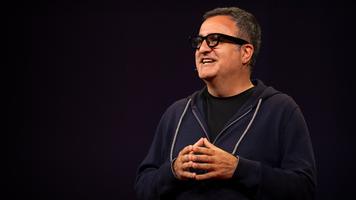
Picture this: you’re wearing a normal-looking pair of glasses, but they give you the ability to quickly summarize a book, translate between languages or remember where you left your keys. In a live demo of unreleased technology, computer scientist Shahram Izadi unveils Google’s new Android XR platform, which aims to give users the power of AI vi...
Misha Glenny: Hire the hackers!
Lucas Rizzotto: Why I built my own time machine
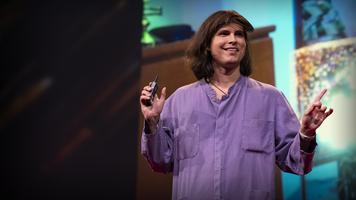
Experiential artist Lucas Rizzotto was going through a tough breakup, so he did what anyone would do: he built a personal time machine. In a playful talk, he shares how his free-ranging experimentation led to various delightful, unexpected innovations that are changing how people think about the relationship between technology and art. "Technolo...
Rafael Chiuzi: The most powerful predictor of team success
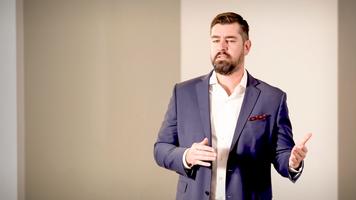
Remember that gut-clenching fear of speaking up in class? Organizational psychologist Rafael Chiuzi reveals how that same feeling shows up in the workplace, limiting productivity and the free exchange of ideas. Backed by decades of research and hands-on consulting, he unpacks the science of psychological safety — and shares three actionable step...
Rives: Reinventing the encyclopedia game
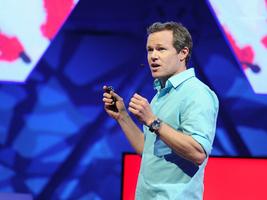
Prompted by the Encyclopaedia Britannica ending its print publication, performance poet Rives resurrects a game from his childhood. Speaking at the TEDxSummit in Doha, Rives takes us on a charming tour through random (and less random) bits of human knowledge: from Chimborazo, the farthest point from the center of the Earth, to Ham the Astrochimp...
Anjan Chatterjee: How your brain decides what is beautiful
Pico Iyer: What ping-pong taught me about life
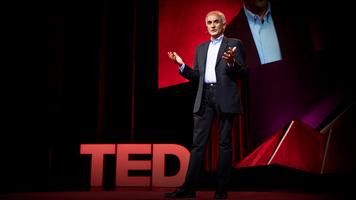
Growing up in England, Pico Iyer was taught that the point of a game was to win. Now, some 50 years later, he's realized that competition can be "more like an act of love." In this charming, subtly profound talk, he explores what regular games of ping-pong in his neighborhood in Japan have revealed about the riddle of winning -- and shows why no...
Rory Sutherland: Sweat the small stuff
Dolly Chugh: How to let go of being a "good" person — and become a better person

What if your attachment to being a "good" person is holding you back from actually becoming a better person? In this accessible talk, social psychologist Dolly Chugh explains the puzzling psychology of ethical behavior — like why it's hard to spot your biases and acknowledge mistakes — and shows how the path to becoming better starts with owning...
Samantha Nutt: The real harm of the global arms trade
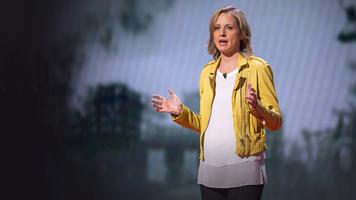
In some parts of the world, it's easier to get an automatic rifle than a glass of clean drinking water. Is this just the way it is? Samantha Nutt, doctor and founder of the international humanitarian organization War Child, explores the global arms trade -- and suggests a bold, common sense solution for ending the cycle of violence. "War is ours...
James B. Glattfelder: Who controls the world?
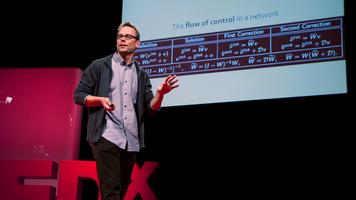
James Glattfelder studies complexity: how an interconnected system -- say, a swarm of birds -- is more than the sum of its parts. And complexity theory, it turns out, can reveal a lot about how the world economy works. Glattfelder shares a groundbreaking study of how control flows through the global economy, and how concentration of power in the...
Jonathan Haidt: Are smartphones ruining childhood?
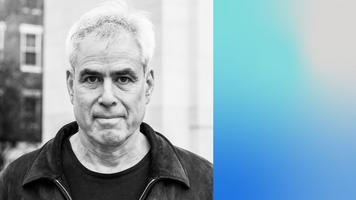
Social psychologist Jonathan Haidt's latest book, "The Anxious Generation," is shaping cultural conversations and sparking fierce debates about the role of smartphones in society. In this timely conversation, he investigates how a smartphone-based childhood, amplified by overprotective parenting, is driving the mental health crisis among young p...
Virginia Postrel: On glamour
Joe DeRisi: Solving medical mysteries
Jim Holt: Why does the universe exist?
Iain Hutchison: Saving faces: A facial surgeon's craft
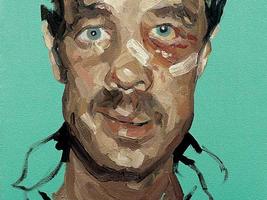
Maxillofacial surgeon Iain Hutchison works with people whose faces have been severely disfigured. By pushing to improve surgical techniques, he helps to improve their lives; and by commissioning their portraits, he celebrates their humanity. NOTE: This talk contains images of disfigured and badly injured faces that may be disturbing -- and Hutch...
Blaise Agüera y Arcas: How computers are learning to be creative
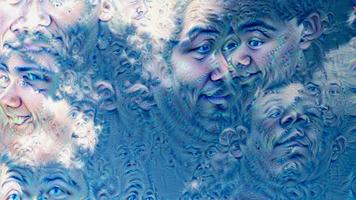
We're on the edge of a new frontier in art and creativity -- and it's not human. Blaise Agüera y Arcas, principal scientist at Google, works with deep neural networks for machine perception and distributed learning. In this captivating demo, he shows how neural nets trained to recognize images can be run in reverse, to generate them. The results...
Paola Antonelli: Treat design as art
Mary Lou Jepsen: How we can use light to see deep inside our bodies and brains
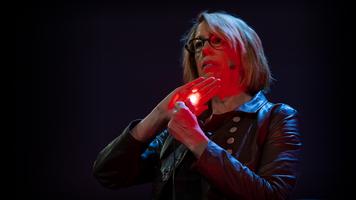
In a series of mind-bending demos, inventor Mary Lou Jepsen shows how we can use red light to see and potentially stimulate what's inside our bodies and brains. Taking us to the edge of optical physics, Jepsen unveils new technologies that utilize light and sound to track tumors, measure neural activity and could possibly replace the MRI machine...
Aaron Koblin: Visualizing ourselves ... with crowd-sourced data
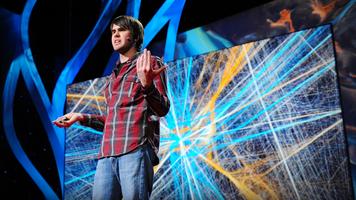
Artist Aaron Koblin takes vast amounts of data -- and at times vast numbers of people -- and weaves them into stunning visualizations. From elegant lines tracing airline flights to landscapes of cell phone data, from a Johnny Cash video assembled from crowd-sourced drawings to the "Wilderness Downtown" video that customizes for the user, his wor...
Niall Ferguson: The 6 killer apps of prosperity
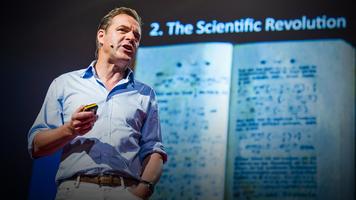
Over the past few centuries, Western cultures have been very good at creating general prosperity for themselves. Historian Niall Ferguson asks: Why the West, and less so the rest? He suggests half a dozen big ideas from Western culture -- call them the 6 killer apps -- that promote wealth, stability and innovation. And in this new century, he sa...
